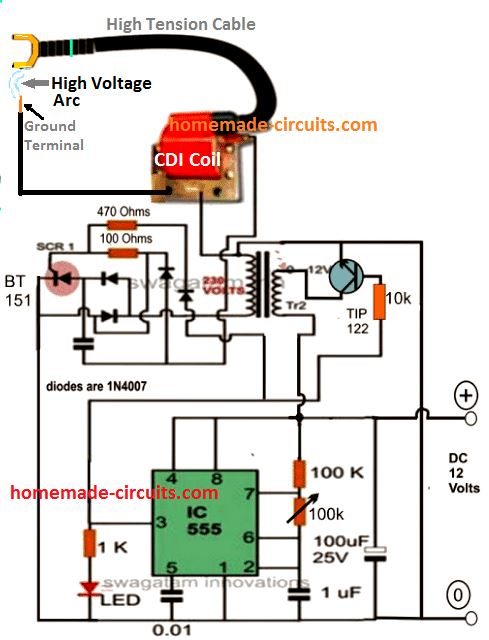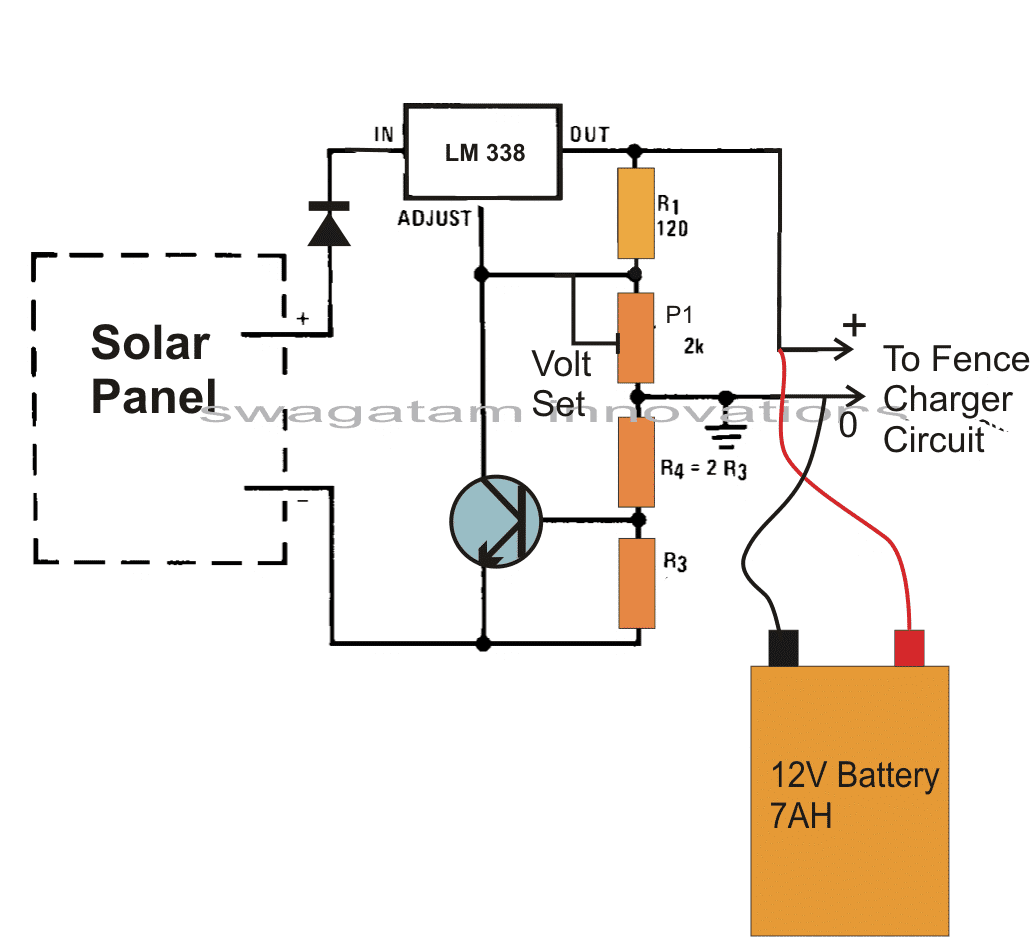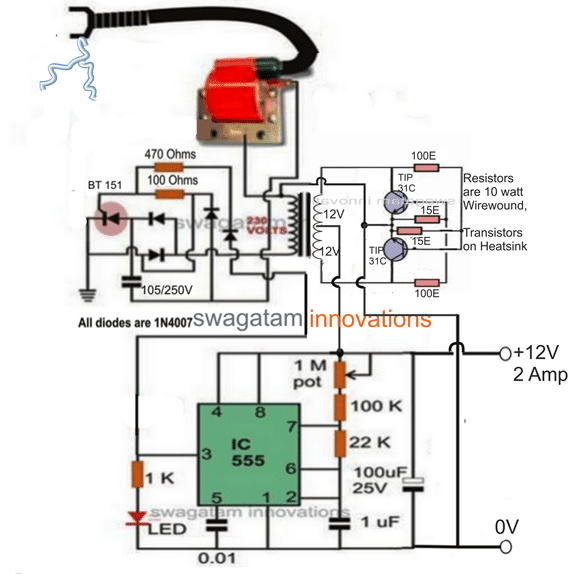A Fence charger or energizer is an equipment which is used for charging(electrifying) a fence or a boundary in order to protect the inside premise from human or animal interventions.
Since these boundaries are mostly of large fields and parks, are normally away from the main cities, and powering them through some renewable option becomes more suitable than from utility grids which may become difficult to acquire in such remote areas.
The circuit of a solar electric fence charger explained here does not depend on traditional power source for operating, rather gets it 24/7 from a self sustained solar power conversion set up.The circuit is very simple to understand.
The fence charger circuit is basically a switching circuit which involves a few diodes and a high voltage capacitor.
How the Circuits Works
The diodes are used for rectifying the AC from a small step up transformer so that it gets stored inside the high voltage capacitor.
When this voltage reaches a particular threshold, the SCR fires and discharges the entire stored voltage inside the capacitor.
The above discharging of the capacitor is done or rather dumped inside the primary section of an automobile ignition coil.
The sudden dumping of the above high voltage inside the ignition coils primary, steps up the surge into several thousands of volts into the secondary winding of the ignition coil.
This stepped up voltage is used for energizing the fences or the boundaries appropriately.
However the above operations requires an AC input at the levels of around 100 to 220volts.
This voltage is generated by suitably processing the input DC from a solar panel set up.
The voltage from the solar panel is first controlled to a suitable level and then it's used for operating a triggering circuit.
The triggering circuit consists of a IC 555 oscillator which switches the voltage obtained from the solar panel controller into the transformers input, so that the output from the transformer generates the required 220V AC for powering the ignition circuit.
The solar panel output also charges a small 12V/7AH battery so that the power can be used after dusk, when sun energy is not available.

Parts List
- 10k, 100k, 1k 1/4 watt 5% = 1 each
- 470 ohms, 100 ohms 1/2 watt 5% = 1 each
- preset 100k = 1no
- Capacitor 1uF/25V, 100uF/25V electrolytic - 1 each
- Capacitpr 0.01uF disc ceramic = 1 no
- Capacitor 105/400V PPC = 1no, near the SCR
Semiconductors
- 1N4007 = 4 nos,
- IC 555 = 1no
- LED red 5mm = 1no
- Transistor TIP122 = 1no
- SCR BT151 = 1no
- Transformer = 0-12V/220V 1 amp
- Ignition Coil from 2-wheeler or 3-wheeler
The above circuit can be powered through the following solar panel current controlled battery charger circuit:
For complete explanation of the circuit please refer this solar voltage regulator circuit.

Parts List
- R1 = 120 ohms
- P1 = 10k pot (not 2k)
- R4 = replace with link
- R3 = 0.6 ohm 1 watt
- Transistor BC547 = 1no
- IC LM338 = 1no
- Diode 1N5408 = 1no
- Solar Panel = 16 V / 2 amp
- Battery 12 V 7 Ah
Fence Charger using a Stand-alone Inverter

Video clip showing the working details of the fence charger circuit. The video basically highlights the strength of the sparks generated by the CDI coil and how effectively this can be used when integrated with a farm fence.
